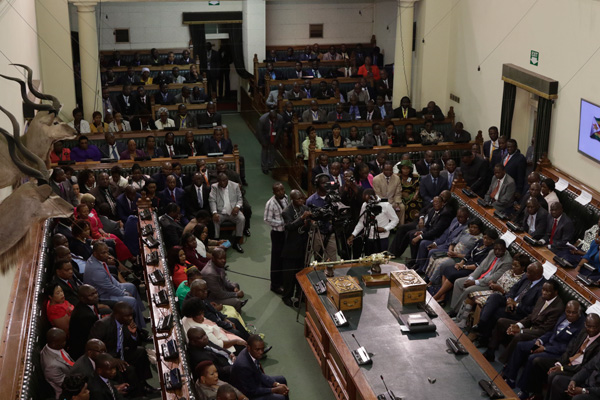
PARLIAMENT has recommended that Rural District Councils (RDCs) must abandon the use of septic tanks and blair toilets at growth points and introduce piped water by the end of this year.
by VENERANDA LANGA
The recommendation was made by the Parliamentary Thematic Committee on Gender in a report which was tabled before Senate last Thursday on access to safe and clean water at rural areas.
“At all growth points where residential areas are expanding rapidly due to migration from outlying rural areas, RDCs should introduce expanded piped water by December 2017,” chairperson of the committee James Makore said as he presented the committee report.
“Sewer systems, septic tanks and blair toilets which are currently being used at most growth points should be abandoned so that it improves the sanitation and hygiene standards to a great deal in rural areas and ultimately curb the outbreaks of diarrhoea, typhoid and dysentery diseases.’
The committee, which visited different rural areas before compiling the report, also noted that water infrastructure at most RDCs was dilapidated and must be revamped to avoid future disasters.
Zimbabwe National Water Authority (Zinwa) was also said to be fleecing residents of their hard-earned money, with residents and institutions struggling to cope with Zinwa tariffs that are fixed charges of $7,40 for the first 10 000 units for domestic users and $10, 96 per unit for the first 25 000 units for commercial rates.
“As a result, residents were failing to pay their water rates, with Gokwe North reporting a default rate of at least 50%. Zinwa should only charge residents for water used and avoid fleecing residents of their hard-earned money by January 2018,” the committee said.
- Chamisa under fire over US$120K donation
- Mavhunga puts DeMbare into Chibuku quarterfinals
- Pension funds bet on Cabora Bassa oilfields
- Councils defy govt fire tender directive
Keep Reading
Coupled with problems of high water tariffs, residents at RDCs were said to be required to pay fixed charges for water even during a period when the services were not being delivered due to breakdowns.
The committee also noted chaotic town planning at growth points with some residential areas built on top of water and sewage pipes.
“The Committee found out that in most districts, a huge number of boreholes are dysfunctional, and that their distribution is skewed in favour of some regions. The new resettlements do not have adequate boreholes. In the resettlement areas, residents still walk more than a kilometre to get to the nearest water source.”
The committee said it was imperative to take into cognisance that disabled residents would be the most affected if they had to get water from sources that are far away.











